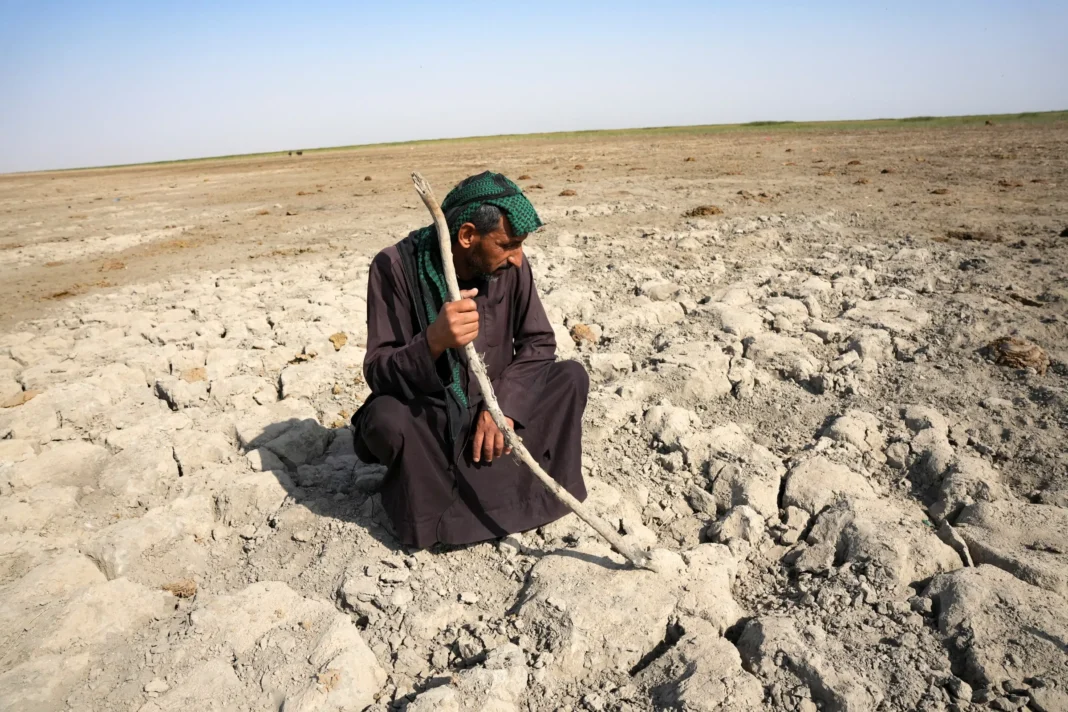Iraq farmers demand water rights amid deepening drought as the crisis continues to damage the country’s agricultural heartland. Across the southern provinces, hundreds of farmers gather to voice frustration and demand fair water distribution. They want the government to protect their livelihoods and support them through this harsh dry season.
Over recent years, Iraq farmers demand water rights amid deepening drought because rainfall has sharply declined. Many once-fertile areas now stand dry and barren. The Tigris and Euphrates Rivers, which gave life to Iraq’s ancient farmlands, have seen water levels fall to historic lows. Farmers who once relied on these rivers now struggle to find enough water for their crops.
In the Ghammas area of Diwaniyah, large groups of farmers marched together to call for change. They came from several nearby provinces, all suffering from the same problem. The protesters asked the government to let them cultivate their land again and to provide financial compensation for their losses. They also urged leaders to share water more fairly between agriculture and urban areas.
Many farmers said the restrictions left them hopeless. “We cannot grow wheat next season because they stopped the water,” one farmer said. Another explained that his 25 hectares of land now lies empty and dry. Each story reflects the same struggle—fields turning to dust and families losing their only source of income.
Iraq farmers demand water rights amid deepening drought because the crisis threatens both food security and rural communities. Bread and rice remain vital parts of the Iraqi diet, yet less local grain means more imports and higher prices. Rural families now face migration toward cities in search of work, creating further economic pressure.
Government officials say they reduced irrigation to preserve drinking water for Iraq’s 46 million people. However, farmers believe this approach ignores their suffering. They argue that better water management and investment in modern irrigation systems can balance both needs.
Beyond drought, Iraq faces external challenges too. Dams in neighboring countries have cut river flows, leaving Iraq with less than 35 percent of its agreed water share. Meanwhile, years of conflict damaged canals, reservoirs, and water networks, making the system fragile and outdated.
Authorities promise new talks with neighboring states and long-term reforms to improve water use. Yet farmers say they cannot wait for future plans—they need immediate relief. Without quick action, more villages could lose their farms entirely.
Step by step, Iraq must rebuild its water strategy to protect both people and agriculture. Restoring the flow of life to these lands remains essential for the country’s future stability and food supply.


